
Antidepressant medications are the typically prescribed treatment for depression, as well as a host of other mood disorders such as anxiety, bipolar disorder, schizophrenia, post-traumatic stress disorder, obsessive-compulsive disorder, substance abuse, chronic pain conditions, and even eating disorders. In fact, reports released by the U.S. Centers for Disease Control and Prevention showed approximately 1 out of every 10 people over the age of 12 is currently taking antidepressant medication. From 2005–2008, antidepressants ranked as the third most common prescription medication consumed by people of all ages, especially people between the ages of 18 and 44. In other words, millions of people are taking and being affected by antidepressants each year.
Medication Unsafe for Teens
There has been a sudden increase in teenage patients suffering from depression and complications of drug therapy treatment. The following supportive study is just one example of how brain disruptive chemicals can worsen an already-delicate balance, producing life threatening side-effects.
New research analysis has determined that Paxil is unsafe for teens.
The Restoring Study 329 (2015) involved 275 adolescents diagnosed with major depression. The participants were divided in two groups. One group took paroxetine (20-40 mg) and imipramine (200-300 mg) while the second was placebo.
The first group taking the medications was not clinically or statistically different from the placebo group, for primary or secondary efficacy result. However, there were serious side effects such as suicidal tendencies. During the double-blind treatment, 11 subjects, in the Paxil group engaged in suicidal acts, compared to 1 person in the placebo group.1
Due to the rise of depressive disorders ending in suicide and the incidence of deaths coinciding with aggressive behavior, the need for another approach is clear.
Granted, suicide is associated with the more severe types of depression like schizophrenia and bipolar disorder (and their medications). But by taking an integrative approach to suicidality, we present at-risk patients with the best opportunity for recovery. We have strong evidence showing how basic biochemical abnormalities and environmental issues affect the structure and functioning of our brains. The brain is also involved in the escalation of aggressive and violent behavior (to be discussed in detail in a future article entry – to include reasons behind school shootings).
The application of nutritional supplementation with other complementary interventions will help lessen risk factors of suicide while addressing the underlying biochemical individuality of a patient. 2
Do Antidepressants Do More Harm than Good?
The hope is that medications treating mood disorders are safe and effective. However, recent scientific research is beginning to show ways in which antidepressant drugs may be more harmful than helpful—or reliable. The issues underlying the over-prescription of antidepressants is such that we find ourselves facing a serious health problem, one which may also have legal and ethical ramifications.
How Do Antidepressants Work – Why Is Their Effect Limited?
Let’s first take a brief look at how most antidepressant medications work. The majority of antidepressants are formulated to alter our body’s systems that regulate serotonin, which functions as a neurotransmitter in our brain. Serotonin is also found throughout the rest of our body, regulating the progression of neuronal cell growth and death, aiding in our digestion, muscle and bowel contractions, as well as affecting mood, sleep, libido/reproduction, blood clotting, and memory and learning.
Selective serotonin reuptake inhibitors (SSRIs), which comprise the majority of prescription antidepressants, are programmed to bind to a serotonin transporter, a molecule that regulates serotonin levels. Most antidepressant medications work the same way: when these drugs connect with the serotonin transporter, they prevent the neurons from reabsorbing serotonin, creating a build-up of serotonin on the outer surface of the neurons.
By increasing serotonin concentration on the neurons, we create an imbalance of serotonin in the brain. The brain will eventually push back against these drugs by effecting a number of biological changes to restore the serotonin balance outside of the brain neurons. This in turn produces a limited duration of symptom benefit, due to the increase in mood regulating serotonin activity.
What Else is Impacted by SSRI Medications?
However, a problem presents itself that may not be obvious: because serotonin is found in many major sites in our body, the use of antidepressants to artificially inflate serotonin’s concentrations produces harmful effects on important body functions and processes that are regulated by serotonin.
Specifically, you can expect to see adverse side effects like abnormal bleeding, digestion problems and sexual dysfunction. While you (and your doctor) may only be interested in how these drugs affect your mood, you need to realize that many of these side effects will further enhance depression and affect future health.
For example, say you are a young, single male with aspirations of interpersonal relationships, only to realize that a very important aspect of a healthy lifestyle (sexual activity) is no longer functioning normally. Do you think this scenario would heal a depressive state? Or would it create frustration and hopelessness, further supporting a mood disorder? 3
This is why we can only say that antidepressants are moderately effective, and should not constitute a permanent, or even a long-term, treatment plan. Even though some patients report a substantial benefit while taking SSRIs, their benefits are due to the brain pushing back, as we described earlier. This means their positive benefit is limited and short-lived, by its very nature. Medical professionals continue to debate the degree of benefit antidepressants provide; however, reports consistently show only modest effects. 4
Does a placebo work as well?
In evaluating the benefits experienced by patients taking antidepressants, and those taking a placebo, there were not any major differences between the two—with the exception that a placebo, or sugar pill, lacks the harmful chemical properties of antidepressants. They even demonstrated similar benefits in terms of timeline: both antidepressant medications and placebos were found to deliver the highest degree of symptom relief at roughly the same time. While antidepressants were found to deliver a higher degree of symptom relief, this difference was only marginal. 5,6
It’s all because of that “push back” brain effect: over subsequent months of treatment, symptoms of depression usually return, typically reaching a full scale relapse. Physicians then prescribe an increase of dosage, or another, more potent medication. It almost seems as though doctors are not properly taking into account the consequences of the brain pushing against the drugs (to rebalance itself), resulting in the patient’s return of symptoms.
There is a reason for the surge of depressive symptoms seen following someone going off their antidepressant medications. This can be thought of as a build-up in pressure, similar to the action of a spring being compressed and then released. The symptoms are held in place for a time, while the medication is being taken—but when the SSRI is no longer present, there is a surge of returning symptoms as the spring is released.
By comparison, the risk of symptom relapse for those taking a placebo at 3 months was approximately 21 percent, while the relapse risk of SSRI medications was doubled, at 43 percent. Additionally, the 3-month relapse risk was much higher when stronger antidepressant drugs had been taken. 7,8,9
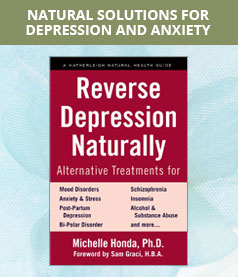
Of course, there’s more at risk when using antidepressants than their diminishing returns. The following are some of the additional risks incurred by the use (or misuse) of mood disorder medications.
Neuronal Damage and Death
Antidepressants cause structural damage to neurons, resulting in neuronal death, a condition similar to what is seen in the brains of Parkinson’s patients. This may be one reason why some patients develop symptoms of Parkinsonian dementia when taking antidepressants. 10,11,12
Brain Impairment
Let’s not forget that neurons are a main feature of proper brain function; therefore, when we have neurons being destroyed by antidepressants, it is to be expected that we would see negative effects on our cognition. Brain impairment due to antidepressant usage is further supported by animal studies, including rodent studies wherein prolonged usage of antidepressants was found to impair their ability to learn and perform a variety of tasks. For older women, owning to prolonged antidepressant use, research shows a 70 percent increased risk of dementia and mild cognitive impairment. 13
Effects of Antidepressants on Aging Population
On the other end of the spectrum, antidepressants also have many negative effects on our aging population. There has been a great deal of research conducted on the ill effects of antidepressants and elderly patients, and there exist strong conclusions surrounding this age group.
Over long periods of time, the side effects of antidepressant medications can be considerable, leading to: 14,15
• Cognitive decline
• Dementia/Alzheimer’s disease
• Stroke
• Cardiovascular problems
• Gastrointestinal problems
• Death
• Hyponatremia (low sodium in blood plasma)
o Headaches
o Nausea
o Muscle cramps
o Lethargy
o Disorientation
Severe cases of Hyponatremia could result in:
o Coma
o Seizures
o Respiratory arrest
o Death
Overall, the number of side effects associated with SSRIs is extensive—and still growing.
References
1. Noury J.L., Nardo J.M., Healy D., Jureidini J., Raven M., Tufanaru C.& Abi-Jaoude E. (2015) Restoring Study 329: efficacy and harms of paroxetine and imipramine in treatment of major depression in adolescence. BMJ 351, h4320. doi:10.1136/bmj.h4320. https://www.ncbi.nlm.nih. gov/pubmed/26376805
2. Orthomolecular Applications in Integrative Psychiatry – Biological Models for Suicide Prevention. Online Course presented by James Greenblatt, MD. March, 2019. https://isom.ca/event/suicide-prevention/
3. Berger, M., Gray, J. A., and Roth, B. L. (2009). The expanded biology of serotonin. Annu. Rev. Med. 60, 355–366. https://www.ncbi.nlm.nih. gov/pmc/articles/PMC5864293/
4 Kirsch, I., Deacon, B. J., Huedo-Medina, T. B., Scoboria, A., Moore, T. J., and Johnson, B. T. (2008). Initial severity and antidepressant benefits: a meta-analysis of data submitted to the food and drug administration. PloS Med. 5, e45. doi:10.1371/journal.pmed.0050045. https://www.ncbi.nlm.nih.gov/pubmed/18303940
5. Bonin, R. (2012). “Treating depression: is there a placebo effect?” in 60 Minutes (New York, NY: CBS Broadcasting, Inc.). https://www.cbsnews.com/news/treating-depression-is-there-a-placebo-effect/
6. Khan, A., Brodhead, A. E., Kolts, R. L., and Brown, W. A. (2005). Severity of depressive symptoms and response to antidepressants and placebo in antidepressant trials. J. Psychiatr. Res. 39, 145–150. https:// www.ncbi.nlm.nih.gov/pubmed/15589562
7. Rutter, J. J., and Auerbach, S. B. (1993). Acute uptake inhibition increases extracellular serotonin in the rat forebrain. J. Pharmacol. Exp. Ther. 265, 1319–1324. https://www.ncbi.nlm.nih.gov/pubmed/7685386
8. Best, J., Nijhout, H. F., and Reed, M. (2010). Serotonin synthesis, releaseand reuptake in terminals: a mathematical model. Theor. Biol. Med.Model. 7. doi: 10.1186/1742-4682-7-34 https://www.ncbi.nlm.nih.gov/pubmed/20723248
9. Honig, G., Jongsma, M. E., van der Hart, M. C. G., and Tecott, L. H. (2009). Chronic citalopram administration causes a sustained suppression of serotonin synthesis in the mouse forebrain. PLoS ONE 4, e6797. doi:10.1371/journal.pone.0006797. https://www.ncbi.nlm.nih.gov/pmc/articles/PMC2728775/
10. Bartholoma, P., Erlandsson, N., Kaufmann, K., Rossler, O. G., Baumann, B., Wirth, T., Giehl, K. M., and Thiel, G. (2002). Neuronal cell death induced by antidepressants: lack of correlation with Egr-1, NF-kappa B and extracellular signal-regulated protein kinase activation. Biochem. Pharmacol. 63, 1507–516. https://www.ncbi.nlm.nih.gov/pubmed/11996893
11. Post, A., Crochemore, C., Uhr, M., Holsboer, F., and Behl, C. (2000). Differential effects of antidepressants on the viability of clonal hippocampal cells. Biol. Psychiatry 47, 138. https://www.biologicalpsychiatryjournal. com/article/S0006-3223(00)00721-6/abstract?mobileUi=0
12. Sairanen, M., Lucas, G., Ernfors, P., Castren, M., and Castren, E. (2005). Brain-derived neurotrophic factor and antidepressant drugs have different but coordinated effects on neuronal turnover, proliferation, and survival in the adult dentate gyrus. J. Neurosci. 25, 1089–1094. https://www.ncbi.nlm.nih.gov/pubmed/15689544
13. Rutter, J. J., and Auerbach, S. B. (1993). Acute uptake inhibition increases extracellular serotonin in the rat forebrain. J. Pharmacol. Exp. Ther. 265, 1319–1324. https://www.ncbi.nlm.nih.gov/pubmed/7685386
14. Paul W. Andrews, Lyndsey Gott & J. Anderson Thomson, Jr. Things Your Doctor Should Tell You About Antidepressants. February 19, 2018. https://www.madinamerica.com/2012/09/things-your-doctor-should-tell-you-about-antidepressants/
15. Front. Psychol., 24 April 2012 | https://doi.org/10.3389/fpsyg.2012.00117. Primum non nocere: an evolutionary analysis of whether antidepressants do more harm than good. https://www.frontiersin.org/articles/10.3389/fpsyg.2012.00117/full
Copyright © 2021 – All Rights Reserved – Michelle Honda Ph.D.
Announcement
Look for my new forthcoming books “Reverse Depression Naturally” (Spring 2020) “Reverse Inflammation Naturally” (May 31, 2017) “Reverse Thyroid Diseases Naturally” (June 2018) “Reverse Alzheimers/Dementia Naturally” (Nov.2018) “Reverse Heart Disease Naturally” (Jan.31, 2017) and “Reverse Gut Diseases Naturally Nov. 2016
Where to Purchase:
Reverse Gut Diseases Naturally Nov. 2016
Reverse Heart Disease Naturally Jan. 2017
Reverse Inflammation Naturally May 2017
Reverse Thyroid Disease Naturally June 28/2018
Reverse Alzheimers Disease Naturally Nov. 2018
Reverse Depression Naturally Spring 2020
Hatherleigh Press Page Buy Book RGDN
Local Book Stores in US and Canada
Disclaimer
While close attention was given to the accuracy of information in this article, the author accepts neither responsibility nor liability to any person with respect to injury, damage, loss or any circumstances involving alleged causes directly or indirectly related to the information in this article. The sole purpose is to educate and broaden ones awareness. This information is not meant to replace medical advice or services provided by a health care professional.





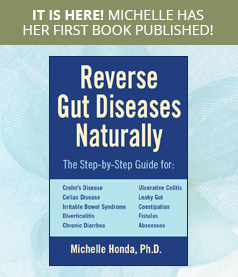


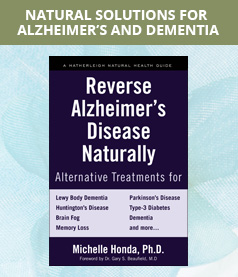
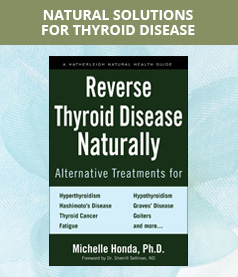

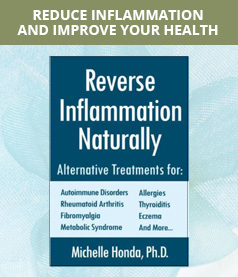
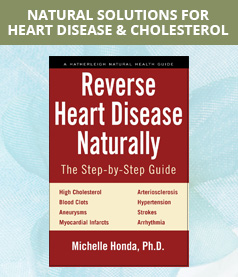
Follow Us!